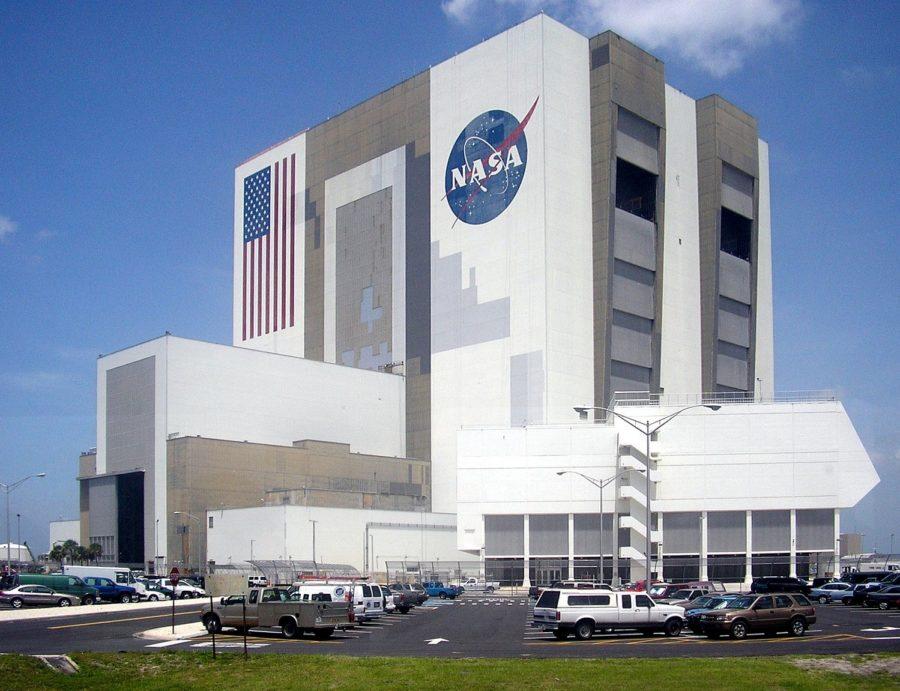Johnson: Science needs more of federal budget
Scientific advancement through work at NASA is just one of the successful examples of the mission to “promote the progress of science” that is laid out in the Constitution. Columnist Johnson argues that Congress needs to take action in promoting and funding more science in America.
March 24, 2014
In Article I, Section 8 of the Constitution of the United States, it states very clearly that the United States Congress shall “promote the progress of science.” As a part of Congress’ constitutional mandate set forth by the founders, it must endeavor to develop the knowledge and application of science for the benefit of all Americans.
This constitutional pursuit is becoming insignificant and, as time progresses forward, the muddled discourse of the congressional house and its understanding of science in general is becoming carelessly aligned. This does not bode well for scientific discovery or subsequent technological advancements.
In 1958, the United States government passed one of the most important acts in American history, the National Aeronautics and Space Act of 1958. This piece of legislation led to the formation of the National Aeronautics and Space Administration. Since then, NASA has been responsible for some of the most important and useful day-to-day applications such as long distance communication, solar energy, smoke detectors, cordless tools, water filters and LED’s [light emitting diodes], just to name a few.
NASA has also been responsible for employing millions of workers. Two million jobs were created in support of the Mercury Program alone in the late 1950s and early 1960s.
From this one act of Congress in the late 1950s, NASA was given the financial capability, vision and courage to put Americans into space, which led to putting Americans on the moon by the end of the 1960s and an international space station to work in unity with other nations. Because of this, the American economy, public and health, in general, has benefited greatly from congressional action and leadership.
Consequently, America was the beacon of human ingenuity and fortitude for decades. Yes, America has accomplished some of the most remarkable achievements in human history. But as we progress into the middle part of the 21st century, the triumphs of the late 20th century and of American scientific discovery are becoming distant memories.
According to the Guardian, a well-respected British media outlet, NASA is projected to spend just 0.49 percent, or roughly 17 billion dollars of the 2014 annual federal budget of roughly 4 trillion dollars. To put this into perspective, the Republican-controlled House of Representatives, and its 2014 budget plan, projected 600 billion dollars for defense and 860 billion dollars for social security, respectively.
To be fair, the Senate Democrats in their 2014 budget proposal are recommending about the same thing, plus or minus a few billion dollars.
Beside a lack of desire to fund space exploration and American audaciousness, Congress has shown a distinct lack of leadership on this matter. Earlier this month, National Geographic reported on a possible American mission to fly by Mars in 2021, but since the mothballing of the American shuttle fleet, the lack of transportation to and from low earth orbit for American astronauts — aside from paying the Russian government for a lift — and the questionable time table for President Obama’s Orion program, there does not seem to be any definitive plan of action by Congress.
To add to the clutter of confusion, during the 2012 Republican primaries for the presidential nomination, and in a moment of grandiose speech, Newt Gingrich, former Speaker of the House, suggested that he would be interested in putting a colony on the moon by the end of his second term.
In response, or lack thereof, not one person in the Republican House majority or the Democratic House minority supported Mr. Gingrich’s vision of American audacity. Instead, he was ridiculed by his opponent, former Massachusetts Governor Mitt Romney and subsequent media outlets.
NASA is just one example of the Constitution’s imperative mission to “promote the progress of science,” although there are other not-so-flashy examples of successful scientific policy in the United States. Furthermore, it is a fact that many of the Founding Fathers were individuals of the Enlightenment, so the endeavor of science is only a natural progression of that era and thought to today’s modern America and her scientific accomplishments.
But as the earth continues to orbit around the sun in the middle of our solar system, so do scientific discovery and potential advancements. It is imperative that Congress understands constitutional prudence, especially with respect to scientific endeavor. If they continue on this path of indecisiveness, the promotion of progress clause in Article I, Section 8 of the United States Constitution will become merely a sad reminder America’s once grand past.

















